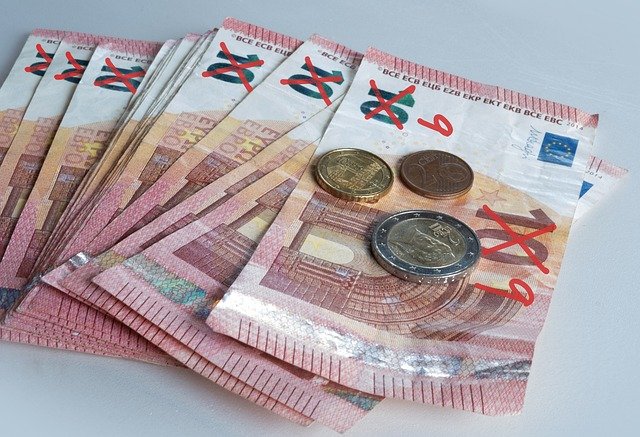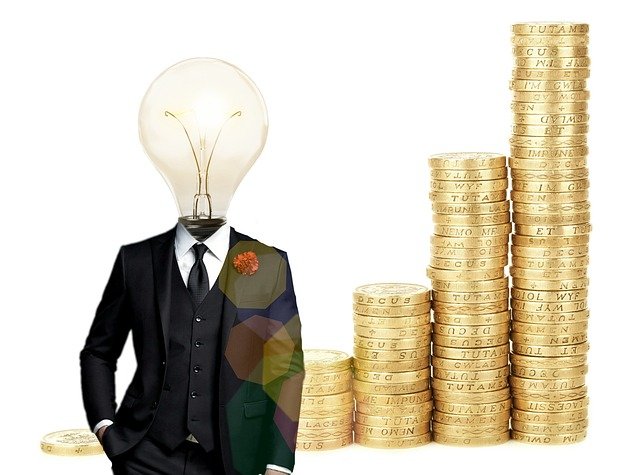Economic policies serve as the foundation of a nation’s financial system, guiding decision-making for governments, businesses, and individuals. On july 30, 2025, understanding these policies is crucial for economic stability, helping countries grow, control inflation, reduce unemployment, and navigate global financial challenges. For further insight, explore Trend Analysis in Business Finance to understand financial trends shaping modern economies.

This article will provide a comprehensive overview of basic economic policies, their types, and their long-term implications.
What Are Economic Policies?
Economic policies are decisions, regulations, and strategies governments use to manage national economies. These policies influence:
✔ Resource allocation – determining where financial investments should go
✔ Production & trade – ensuring industries function efficiently
✔ Employment & wages – shaping labor markets for fair wages and job creation
✔ Inflation & monetary stability – controlling the supply of money
Governments adjust economic policies based on domestic and global financial conditions, responding to challenges like inflation, recession, trade disruptions, and technological shifts. To learn more about global economic policies, visit World Bank Economic Research for reports on economic policies worldwide.
Types of Basic Economic Policies
1. Fiscal Policy: Government Spending and Taxation
Fiscal policy is one of the most powerful tools used to shape a country’s economy. It regulates government revenue and expenditure, ensuring financial stability.
Fiscal Policy Approaches:
- Expansionary Fiscal Policy:
- Boosts economic growth by increasing government spending
- Reduces taxes to encourage consumer spending and investment
- Used during recessions to prevent economic slowdown
- Contractionary Fiscal Policy:
- Controls inflation by reducing government spending
- Increases taxes to slow excessive spending
- Used when economies overheat, leading to inflationary pressure
Advanced Fiscal Policy Strategies:
- Public-Private Partnerships (PPPs): Governments collaborate with private firms for infrastructure development without excessive debt.
- Progressive Taxation: Higher taxes for wealthy individuals ensure fair income distribution and fund essential social services.
- Social Welfare Investments: Increased budget allocation for education, healthcare, and housing improves living standards.
For detailed tax calculations, refer to Taxes 2025 Calculator for updated fiscal strategies.
✅ Example:
During the 2008 Financial Crisis, the U.S. government launched stimulus packages, cutting taxes and increasing spending to revive economic growth.
2. Monetary Policy: Regulating Money Supply and Interest Rates
Monetary policy is controlled by central banks, influencing money flow, interest rates, and financial stability.
Key Monetary Policy Tools:
- Interest Rate Adjustments:
- Lower rates stimulate economic activity by making borrowing cheaper
- Higher rates reduce inflation by discouraging excessive spending
- Open Market Operations:
- Central banks buy/sell government bonds to regulate liquidity
- Helps maintain financial stability during inflationary cycles
Emerging Trends in Monetary Policy:
- Central Bank Digital Currencies (CBDCs): Countries like China are adopting digital currencies like the e-CNY, giving central banks direct control over money flow.
- Inflation Targeting: Setting specific inflation rates ensures predictable economic conditions.
- Financial Inclusion: Policies encouraging digital banking and credit access expand economic participation.
To learn about smart investing strategies, visit Smart Investment Guide.
✅ Example:
During 2020’s COVID-19 pandemic, the Federal Reserve slashed interest rates to near zero, making borrowing easier and preventing a recession.
3. Trade Policy: Shaping Global Economic Relationships

Trade policy governs international commerce, helping nations navigate global markets.
Types of Trade Policies:
- Free Trade Agreements (FTA): Eliminating tariffs and restrictions to encourage global trade (e.g., NAFTA, RCEP).
- Protectionist Policies: Imposing tariffs to protect domestic industries from foreign competition.
Trade Policy Developments in 2024:
- RCEP & Asia’s Trade Growth: Countries like China, Japan, and South Korea strengthen economic partnerships.
- Brexit’s Impact on European Trade: The UK renegotiates new agreements affecting trade with the EU.
- US-China Trade Tensions: Global businesses adjust supply chains due to shifting tariffs.
✅ Example:
China’s Belt and Road Initiative (BRI) has fueled trade expansion and infrastructure development, benefiting Asian economies.
Why Are Basic Economic Policies Important?
Economic policies ensure stability, employment, and financial security, benefiting both governments and individuals.
🌍 Economic Stability – Managing crises like inflation, recessions, and trade shocks
💰 Job Creation – Strategic investments in industries and infrastructure
📈 Inflation Control – Central banks stabilize prices and purchasing power
🏢 Encouraging Investments – Fiscal and trade policies attract foreign investment
📊 Improved Living Standards – Strong policies reduce poverty and enhance education
✅ Example:
Germany’s export-driven economy, supported by sound fiscal policies, made it an EU economic leader.
Challenges in Implementing Basic Economic Policies
Despite their importance, economic policies face hurdles affecting their effectiveness:
⚖ Political Influence – Short-term policies may override long-term stability
🌐 Global Uncertainty – Trade wars, economic crises, and pandemics disrupt economic stability
💵 Limited Resources – Developing nations struggle with investment capacity
📢 Public Opposition – Tax hikes & spending cuts often face resistance
Governments must balance economic objectives, ensuring sustainable growth while managing risks.
To explore how businesses manage risk in market volatility, visit How to Manage Portfolio Risk.
✅ Example:
India’s 2016 demonetization policy, aimed at reducing black money, had unintended consequences like cash shortages.
Recent Economic Policy Developments (2024)
Pakistan’s Economic Transformation Plan
The government has launched a $1 trillion strategy, aiming for:
✅ 9.8% annual GDP growth
✅ $60 billion exports by 2029
✅ Fiscal improvements through tax reforms
Monetary Policy Adjustments in Pakistan
The State Bank’s 11 July 2025 policy update highlights efforts to stabilize inflation and encourage investment.
Fiscal Consolidation Efforts
Pakistan’s current account surplus and growing exports indicate positive macroeconomic trends.
- For insights on tax planning and economic strategies, visit Tax Planning Guide to explore tax-saving techniques and strategies.
- For ongoing financial news, stay updated with global markets and economic trends on Bloomberg Economics.
- To explore global financial trends, visit OECD Economic Policy Reports.
Frequently Asked Questions (FAQs) on Basic Economic Policies
1. What are basic economic policies?
Basic economic policies are strategies and regulations set by governments to manage resources, production, employment, inflation, and trade. They ensure economic stability and growth, helping countries tackle financial challenges such as recessions, inflationary spikes, trade imbalances, and unemployment.
Governments design economic policies based on national priorities, financial resources, and global market trends. These policies continuously evolve, adjusting to new economic conditions, emerging industries, and international relations.
📌 Example:
During the 2008 global financial crisis, countries implemented expansionary fiscal policies, cutting taxes and increasing government spending to revive economic activity.
2. Why is fiscal policy important?
Fiscal policy directly affects government revenue, expenditure, and taxation, shaping economic performance. Its role is critical in managing inflation, employment, and growth.
Key Fiscal Policy Objectives:
✔ Stimulating Growth: Expansionary policies encourage higher spending and investment.
✔ Controlling Inflation: Contractionary policies regulate excessive liquidity by raising taxes or cutting spending.
✔ Reducing Unemployment: Public sector investments create jobs in infrastructure, healthcare, and technology.
✔ Income Redistribution: Progressive taxation reduces wealth inequality and funds social programs.
📌 Example:
Many developed economies, including the United States and Germany, rely on progressive taxation to fund education, healthcare, and public services.
🔗 Related Resource: Learn about tax planning strategies at Tax Planning Guide.
3. How does monetary policy control inflation?
Monetary policy regulates the supply of money, credit availability, and interest rates to stabilize prices and maintain economic stability.
How Monetary Policy Manages Inflation:
✔ Interest Rate Adjustments: Higher interest rates discourage borrowing, reducing excess liquidity and cooling inflation.
✔ Open Market Operations: Central banks buy/sell government bonds to control the money supply.
✔ Reserve Requirements: Banks are required to hold reserves, preventing excessive lending that could fuel inflation.
✔ Exchange Rate Management: Stable currency values help control import prices, affecting inflation dynamics.
📌 Example:
The Federal Reserve in the U.S. frequently adjusts interest rates to counter inflation spikes, such as during the post-pandemic economic recovery in 2021-2023.
🔗 Related Resource: Get insights on global monetary policies from the Federal Reserve.
4. What is the difference between free trade and protectionist policies?
Free Trade Policies:
- Lower trade barriers, allowing goods and services to move freely between countries.
- Encourages competition, reducing prices for consumers.
- Boosts efficiency, as businesses operate in larger markets.
📌 Example:
Trade agreements like NAFTA (North America Free Trade Agreement) and RCEP (Regional Comprehensive Economic Partnership) have expanded cross-border commerce in America and Asia.
Protectionist Policies:
- Impose tariffs on imports to shield domestic businesses from foreign competition.
- Restrict foreign investment to strengthen national industries.
- Regulate exports, ensuring strategic goods remain within the country.
📌 Example:
The U.S.-China trade war led to higher tariffs on Chinese imports, affecting global supply chains and manufacturing costs.
🔗 Related Resource: Explore global trade dynamics at the World Trade Organization.
5. How do economic policies impact individuals?
Economic policies affect employment, wages, taxes, purchasing power, and investment opportunities.
Personal Impact of Economic Policies:
✔ Job Opportunities: Government spending in education, defense, and infrastructure creates employment.
✔ Cost of Living: Inflation control policies prevent extreme price fluctuations in housing, groceries, and fuel.
✔ Taxation & Disposable Income: Fiscal policies determine how much individuals pay in taxes, influencing spending ability.
✔ Investment Growth: Trade and investment-friendly policies encourage stock market growth and higher returns on investments.
📌 Example:
Countries with strong labor protection laws—such as Sweden and Germany—ensure better wages and work conditions for employees.
🔗 Related Resource: Learn about wealth-building strategies at Complete Guide to Wealth Building.
6. What are some challenges in implementing economic policies?
Economic policies often face political, financial, and social hurdles, affecting their effectiveness.
Common Challenges:
⚠ Political Influence: Leaders may prioritize short-term election gains over long-term economic stability.
⚠ Global Economic Uncertainty: Trade wars, pandemics, and financial crises disrupt planned policies.
⚠ Limited Resources: Developing countries struggle with budget constraints, affecting infrastructure and welfare programs.
⚠ Public Resistance: Tax hikes or spending cuts often face opposition from businesses and citizens.
📌 Example:
India’s 2016 demonetization policy, aimed at reducing black money, triggered cash shortages and economic slowdowns.
🔗 Related Resource: Read the latest global economic reports at World Bank Economic Research.
7. How does trade policy affect businesses?
Trade policies shape business growth, pricing strategies, and supply chains.
Effects on Businesses:
✔ Import Costs: High tariffs increase costs for businesses importing raw materials.
✔ Market Expansion: Free trade agreements allow companies to access global customers.
✔ Supply Chain Disruptions: Trade wars can affect production, limiting product availability.
✔ Foreign Investments: Strong trade agreements encourage multinational corporations to invest.
📌 Example:
Apple’s reliance on Chinese manufacturing faced disruptions due to U.S.-China tariff conflicts, forcing supply chain adaptations.
🔗 Related Resource: Explore portfolio risk management strategies at How to Manage Portfolio Risk.
8. Where can I learn more about current global economic trends?
- For insights on tax planning and economic strategies, visit Tax Planning Guide to explore tax-saving techniques and strategies.
- For ongoing financial news, stay updated with global markets and economic trends on Bloomberg Economics.
- For global monetary policy updates, check the Federal Reserve Monetary Policy Reports.
- For international trade regulations, visit the World Trade Organization.
- For emerging market insights, refer to OECD Economic Policy Reports.